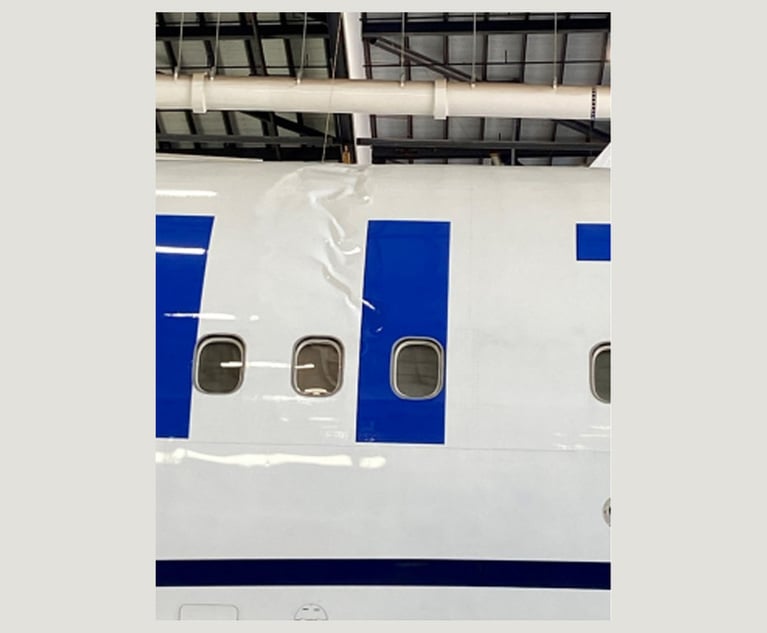E-discovery: Hot topics and recurring issues in recent e-discovery case law
New developments arise frequently in e-discovery case law. In this article, we discuss a few particularly important recent decisions.
October 02, 2012 at 04:10 AM
8 minute read
The original version of this story was published on Law.com
New developments arise frequently in e-discovery case law. In this article, we discuss a few particularly important recent decisions.
Litigation holds
The common law requires litigants to preserve relevant evidence (including ESI) as soon as litigation is “reasonably anticipated.” Preservation typically begins when a company issues a litigation hold. Because courts can sanction parties who fail to implement or monitor litigation holds, disputes frequently arise in this area. For example, in the Apple Inc. v. Samsung Electronics Co., Ltd. case, both parties received sanctions in the form of adverse inference jury instructions for their failure to preserve relevant documents.
A major reason why there is so much satellite litigation on this topic is that many courts have found that “after a discovery duty is well established, the failure to adhere to contemporary standards can be considered gross negligence,” as opposed to ordinary negligence. Although some have bucked this general trend, the 2nd Circuit's opinion in Chin v. Port Authority of New York & New Jersey appears to have settled this debate in New York, at least for now.
There, one plaintiff argued that the district court erred in denying his motion for sanctions for failure to preserve certain records. In holding that the district court did not abuse its discretion, the 2nd Circuit rejected the idea “that a failure to institute a 'litigation hold' constitutes gross negligence per se.” Thus, in one sentence, the court reversed the aforementioned trend, and determined that the better approach is to consider the failure to adopt good preservation practices as a factor in deciding whether sanctions should issue.
Cost-shifting
A recent Eastern District of Pennsylvania decision addressed cost-shifting prior to class certification. Plaintiffs alleged that the defendant engaged in deceptive practices and breached the plaintiffs' gym membership contracts when plaintiffs decided to terminate their memberships. Recognizing the possibility that the case may be certified as a class action, the court observed that discovery would be asymmetrical—the brunt of the costs of discovery would be borne by the defendants, as opposed to plaintiffs, who likely would have very few documents. The court concluded that “where (1) class certification is pending, and (2) the plaintiffs have asked for very extensive discovery, compliance with which will be very expensive, that absent compelling equitable circumstances to the contrary, the plaintiffs should pay for the discovery they seek.” The court added that if plaintiffs (and their counsel) have confidence that the court will certify the class, plaintiffs should not object to investing in the costs of discovery.
Recovering e-discovery costs
The 3rd Circuit's recent decision in Race Tires America v. Hoosier Racing Tire Corp. resolved the issue of recovery of costs related to e-discovery under 28 U.S.C. § 1920(4). The question before the court was whether the statute permits the recovery of costs for expenses incurred by parties who retain e-discovery vendors. Several lower courts had addressed the issue inconsistently and the 3rd Circuit resolved the conflict.
In Race Tires, an antitrust litigation, the parties conducted extensive discovery. The district court granted the defendants' motion for summary judgment, and defendants each filed a bill of costs seeking a total of $472,000, the majority of which related to e-discovery expenses. The prevailing party wished to recover costs generated by certain activities of an e-discovery vendor because under 28 U.S.C. § 1920(4) a prevailing party may recover costs “for exemplification and the costs for making copies of any materials where the copies are necessarily obtained for use in the case.” The court concluded that “of the numerous services the vendors performed, only the scanning of hard copy documents, the conversion of native files to TIFF and the transfer of VHS tapes to DVD involved 'copying,' and that the costs attributable to only those activities are recoverable” under § 1920(4). Accordingly, the court remanded the case to the district court to reassess the costs.
New developments arise frequently in e-discovery case law. In this article, we discuss a few particularly important recent decisions.
Litigation holds
The common law requires litigants to preserve relevant evidence (including ESI) as soon as litigation is “reasonably anticipated.” Preservation typically begins when a company issues a litigation hold. Because courts can sanction parties who fail to implement or monitor litigation holds, disputes frequently arise in this area. For example, in the
A major reason why there is so much satellite litigation on this topic is that many courts have found that “after a discovery duty is well established, the failure to adhere to contemporary standards can be considered gross negligence,” as opposed to ordinary negligence. Although some have bucked this general trend, the 2nd Circuit's opinion in Chin v. Port Authority of
There, one plaintiff argued that the district court erred in denying his motion for sanctions for failure to preserve certain records. In holding that the district court did not abuse its discretion, the 2nd Circuit rejected the idea “that a failure to institute a 'litigation hold' constitutes gross negligence per se.” Thus, in one sentence, the court reversed the aforementioned trend, and determined that the better approach is to consider the failure to adopt good preservation practices as a factor in deciding whether sanctions should issue.
Cost-shifting
A recent Eastern District of Pennsylvania decision addressed cost-shifting prior to class certification. Plaintiffs alleged that the defendant engaged in deceptive practices and breached the plaintiffs' gym membership contracts when plaintiffs decided to terminate their memberships. Recognizing the possibility that the case may be certified as a class action, the court observed that discovery would be asymmetrical—the brunt of the costs of discovery would be borne by the defendants, as opposed to plaintiffs, who likely would have very few documents. The court concluded that “where (1) class certification is pending, and (2) the plaintiffs have asked for very extensive discovery, compliance with which will be very expensive, that absent compelling equitable circumstances to the contrary, the plaintiffs should pay for the discovery they seek.” The court added that if plaintiffs (and their counsel) have confidence that the court will certify the class, plaintiffs should not object to investing in the costs of discovery.
Recovering e-discovery costs
The 3rd Circuit's recent decision in Race Tires America v. Hoosier Racing Tire Corp. resolved the issue of recovery of costs related to e-discovery under
In Race Tires, an antitrust litigation, the parties conducted extensive discovery. The district court granted the defendants' motion for summary judgment, and defendants each filed a bill of costs seeking a total of $472,000, the majority of which related to e-discovery expenses. The prevailing party wished to recover costs generated by certain activities of an e-discovery vendor because under
This content has been archived. It is available through our partners, LexisNexis® and Bloomberg Law.
To view this content, please continue to their sites.
Not a Lexis Subscriber?
Subscribe Now
Not a Bloomberg Law Subscriber?
Subscribe Now
NOT FOR REPRINT
© 2025 ALM Global, LLC, All Rights Reserved. Request academic re-use from www.copyright.com. All other uses, submit a request to [email protected]. For more information visit Asset & Logo Licensing.
You Might Like
View All


After Botched Landing of United Airlines Boeing 767, Unlikely Plaintiff Sues Carrier
5 minute read
DOT Moves to Roll Back Emissions Rules, Eliminate DEI Programs
Trending Stories
- 1Two More Victims Alleged in New Sean Combs Sex Trafficking Indictment
- 2Jackson Lewis Leaders Discuss Firms Innovator Efforts, From Prompt-a-Thons to Gen AI Pilots
- 3Trump's DOJ Files Lawsuit Seeking to Block $14B Tech Merger
- 4'No Retributive Actions,' Kash Patel Pledges if Confirmed to FBI
- 5Justice Department Sues to Block $14 Billion Juniper Buyout by Hewlett Packard Enterprise
Who Got The Work
J. Brugh Lower of Gibbons has entered an appearance for industrial equipment supplier Devco Corporation in a pending trademark infringement lawsuit. The suit, accusing the defendant of selling knock-off Graco products, was filed Dec. 18 in New Jersey District Court by Rivkin Radler on behalf of Graco Inc. and Graco Minnesota. The case, assigned to U.S. District Judge Zahid N. Quraishi, is 3:24-cv-11294, Graco Inc. et al v. Devco Corporation.
Who Got The Work
Rebecca Maller-Stein and Kent A. Yalowitz of Arnold & Porter Kaye Scholer have entered their appearances for Hanaco Venture Capital and its executives, Lior Prosor and David Frankel, in a pending securities lawsuit. The action, filed on Dec. 24 in New York Southern District Court by Zell, Aron & Co. on behalf of Goldeneye Advisors, accuses the defendants of negligently and fraudulently managing the plaintiff's $1 million investment. The case, assigned to U.S. District Judge Vernon S. Broderick, is 1:24-cv-09918, Goldeneye Advisors, LLC v. Hanaco Venture Capital, Ltd. et al.
Who Got The Work
Attorneys from A&O Shearman has stepped in as defense counsel for Toronto-Dominion Bank and other defendants in a pending securities class action. The suit, filed Dec. 11 in New York Southern District Court by Bleichmar Fonti & Auld, accuses the defendants of concealing the bank's 'pervasive' deficiencies in regards to its compliance with the Bank Secrecy Act and the quality of its anti-money laundering controls. The case, assigned to U.S. District Judge Arun Subramanian, is 1:24-cv-09445, Gonzalez v. The Toronto-Dominion Bank et al.
Who Got The Work
Crown Castle International, a Pennsylvania company providing shared communications infrastructure, has turned to Luke D. Wolf of Gordon Rees Scully Mansukhani to fend off a pending breach-of-contract lawsuit. The court action, filed Nov. 25 in Michigan Eastern District Court by Hooper Hathaway PC on behalf of The Town Residences LLC, accuses Crown Castle of failing to transfer approximately $30,000 in utility payments from T-Mobile in breach of a roof-top lease and assignment agreement. The case, assigned to U.S. District Judge Susan K. Declercq, is 2:24-cv-13131, The Town Residences LLC v. T-Mobile US, Inc. et al.
Who Got The Work
Wilfred P. Coronato and Daniel M. Schwartz of McCarter & English have stepped in as defense counsel to Electrolux Home Products Inc. in a pending product liability lawsuit. The court action, filed Nov. 26 in New York Eastern District Court by Poulos Lopiccolo PC and Nagel Rice LLP on behalf of David Stern, alleges that the defendant's refrigerators’ drawers and shelving repeatedly break and fall apart within months after purchase. The case, assigned to U.S. District Judge Joan M. Azrack, is 2:24-cv-08204, Stern v. Electrolux Home Products, Inc.
Featured Firms
Law Offices of Gary Martin Hays & Associates, P.C.
(470) 294-1674
Law Offices of Mark E. Salomone
(857) 444-6468
Smith & Hassler
(713) 739-1250






